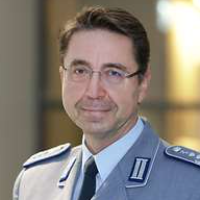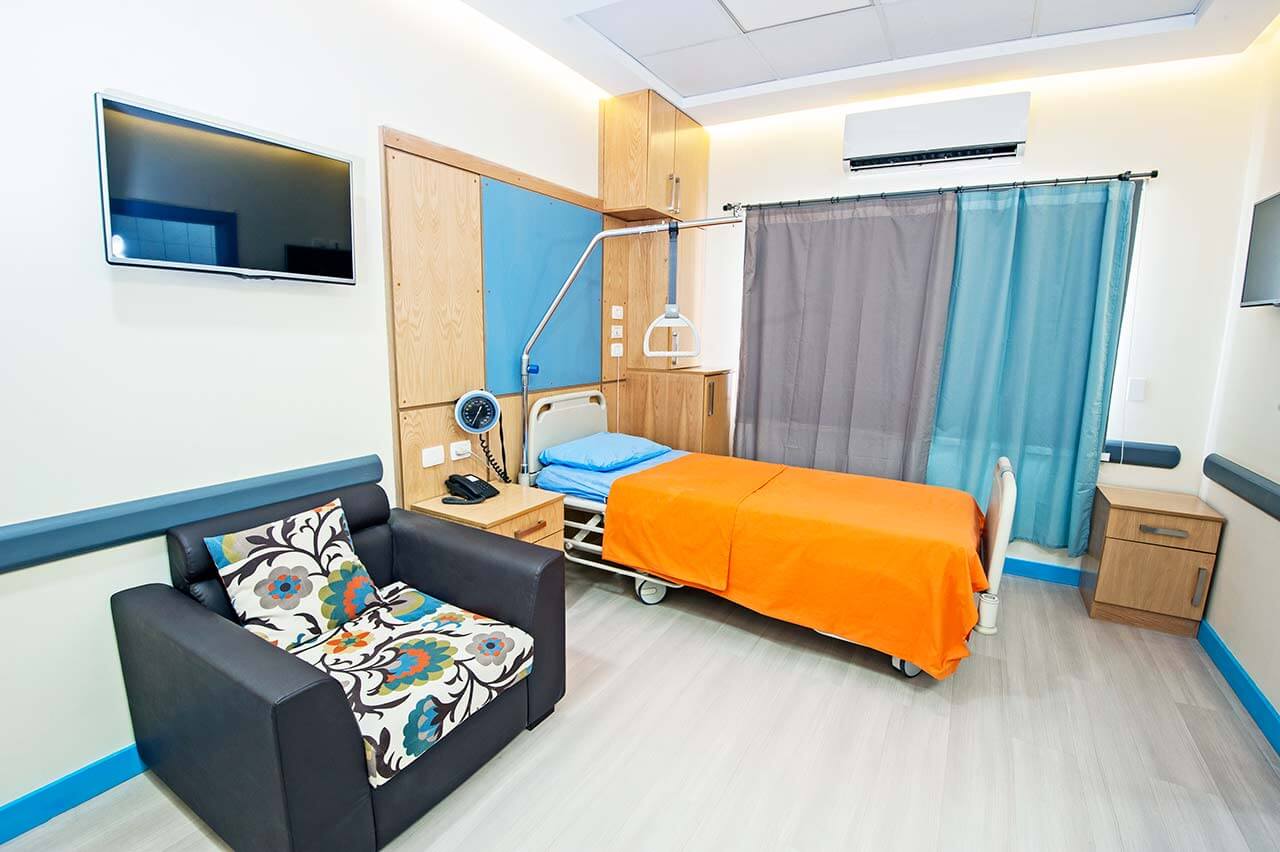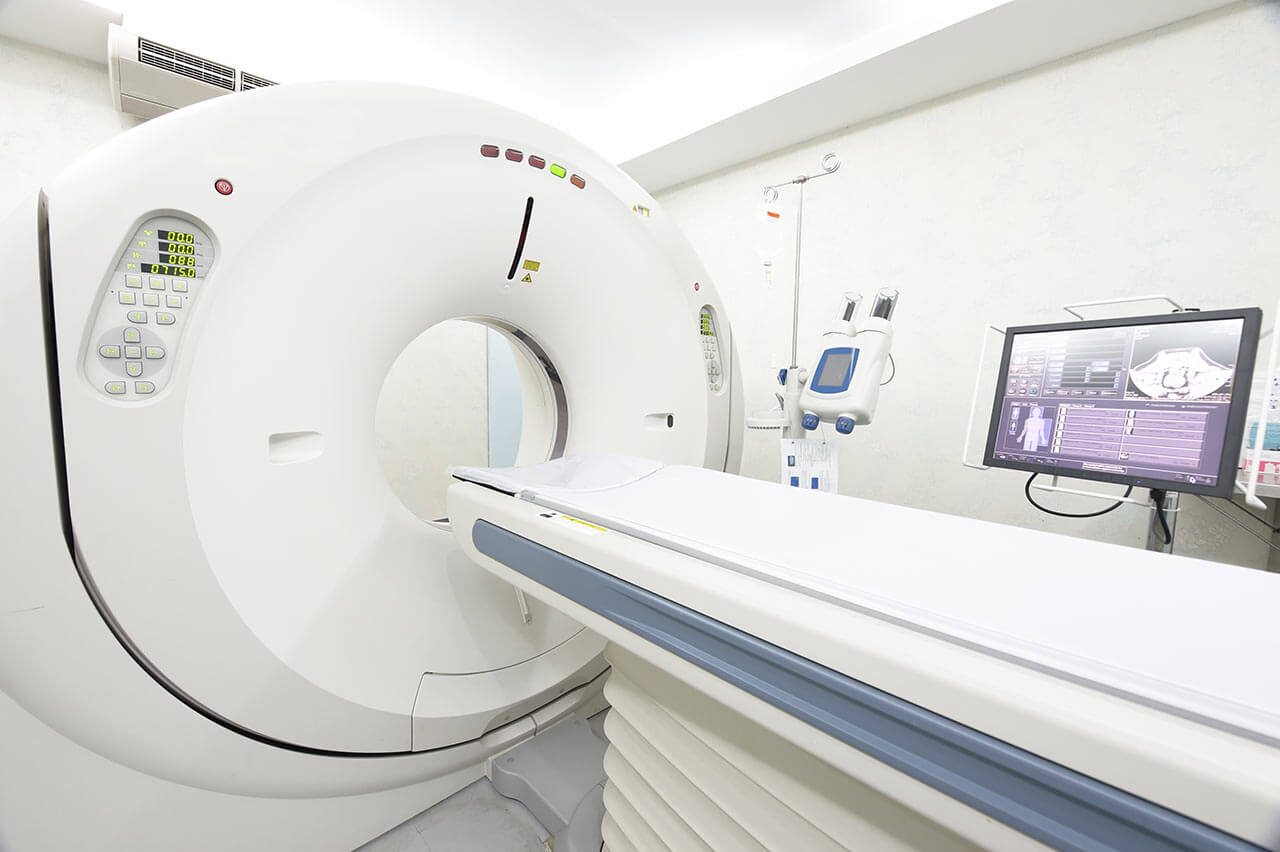
About the Department of Traumatology, Orthopedics and Foot Surgery at Bundeswehr Hospital Berlin
The Department of Traumatology, Orthopedics and Foot Surgery at the Bundeswehr Hospital Berlin offers the full range of modern therapeutic methods for the treatment of musculoskeletal injuries and diseases. The special areas of competence include joint replacement surgery with revision procedures, sports and geriatric traumatology, knee and shoulder joint surgery, foot surgery, treatment of complicated infections of soft tissues, joints and endoprostheses, closure of soft tissue defects. In cooperation with the Departments of Vascular Surgery and Dermatology, the doctors deal with the treatment of complicated and chronic wounds in patients with healing disorders – in a certified center. The department's operating rooms have advanced equipment and are adapted for sparing minimally invasive interventions, which significantly reduce the risks to the patient's health and shorten the recovery period after surgery. The department's doctors are brilliant professionals in their area of specialization and do their best to give patients freedom of movement without pain. The department is headed by Prof. Dr. med. Christian Willy.
The department offers modern options for the treatment of joint pathologies. Arthrosis (joint degeneration) and arthritis (joint inflammation) are the most common pathologies in the department's clinical practice. With such diseases confirmed, the patients often require a partial or total arthroplasty, which is the replacement of the joint with an artificial prosthesis. The department's orthopedists specialize in knee, hip and shoulder replacement surgery. Prior to the arthroplasty, the patient undergoes comprehensive diagnostics and receives an individual consultation, at which a doctor explains the possible treatment options and talks about the features of the upcoming operation. Once the decision to perform the operation is made, the preparation stage will begin, the main task of which is to select the optimal model of the prosthesis, based on the specific diagnosis, the patient's professional activity and his activity in everyday life. If the patient regularly has intensive physical activity, then a high-quality prosthesis is required that can meet the patient's needs in his everyday life. In some cases, it is required to implant a custom-made artificial prosthesis. As a rule, the department's surgeons perform joint replacement surgery using minimally invasive techniques. In addition, the specialists have innovative navigation devices that allow them to implant a prosthesis with pinpoint accuracy, which largely determines the success of the surgical intervention. The operation is followed by rehabilitation measures (therapeutic exercises, physiotherapeutic procedures) to quickly restore the patient's mobility. The department also successfully performs revision surgical interventions to replace the previously implanted prostheses.
The department also offers treatment with percutaneous and bone-implanted prosthetic systems (endo-/exoprostheses) for patients who had an amputation surgery. When using this technology, a durable mechanism is implanted into the bone, which is removed through the skin and serves as a fixation point for a modern endoprosthesis. This innovative technique, originally introduced in Sweden and then developed in Luebeck, is now actively used in the department. The treatment with an endo-/exoprosthesis requires two operations. First, a rod (a fixation device) is implanted into the bone, for example, into the femur, the stump is connected to it surgically and closed again so that the rod can firmly fuse with the bone. After 4-6 weeks, a second surgical intervention is performed, in which the skin over the endoprosthesis is dissected, and it is connected to a high-tech exoprosthesis that imitates the missing limb. After the second stage, during a short stay in the hospital, the first fitting of the exoprosthesis according to the orthopedic technology is performed. After that, the patient, along with the experienced department's physiotherapists, makes the first attempts to stand and walk. The advantages of this treatment method include less severe pain, better physical abilities of the patient (longer walking) and longer daily use of the prosthesis (80% increase), better floor contact sensations (greater sensitivity), greater range of motion, stability of the prosthesis rod with a change in the volume of the stump caused by a change in the patient's activity.
An important focus of the department's work is on the treatment of musculoskeletal injuries, including especially complex ones. The department is a certified Regional Trauma Center and is also part of the prestigious Trauma Network in Berlin. The most common injuries include bone fractures of the extremities and spinal injuries. The department can boast of its successful experience in the treatment of injuries in elderly patients, which is complicated by natural changes in the body of an elderly person and the presence of concomitant diseases. Traumatologists also deal with the prevention and diagnostics of osteoporosis, which significantly increases the risk of bone fractures.
The department's therapeutic offer is complemented by the treatment of foot diseases and deformities. Of particular interest to the doctors of this medical profile are the treatment of hallux valgus, hallux rigidus, repair of hammer toes and claw toes, as well as transverse platypodia. The patient quite often needs a surgical intervention for the treatment of the above mentioned foot pathologies. The doctors select the optimal type of surgery and accurately plan it, so the patients can be sure that they will get the best result. Sometimes the specialists use only conservative treatments and manage to eliminate foot disease without any surgery.
The department's main clinical activities include:
- Traumatology
- Primary medical care for acute musculoskeletal injuries, including highly severe injuries and injuries in elderly patients
- Treatment of polytrauma
- Treatment of the consequences of injuries of the limbs, pelvis and spine
- Prophylaxis and treatment of osteoporosis to prevent fractures
- Orthopedics
- Joint replacement surgery
- Hip replacement surgery
- Knee replacement surgery
- Shoulder replacement surgery
- Revision interventions to replace the previously implanted prostheses in a case of their impaired function, the development of infections, or prosthesis fractures
- Placement of percutaneous bone-implanted prosthetic systems (endo-/exoprostheses) after limb amputation surgery
- Shoulder surgery
- Arthroscopic interventions for rotator cuff tears, impingement syndrome, shoulder instability, etc.
- Osteosynthesis for shoulder fractures
- Knee surgery
- Interventions on the menisci
- Sparing partial removal
- Reconstructive interventions
- Interventions on the articular cartilage
- Pridie procedure
- Cartilage transplantation (autologous chondrocyte transplantation)
- Interventions on the ligaments
- Anterior cruciate ligament replacement (STG and BTB technique)
- Posterior cruciate ligament replacement
- Revision interventions for cruciate ligament replacement
- External and internal cruciate ligament reconstruction
- Therapy for recurrent patellar dislocations
- Interventions on the bones
- Correction of axial deformities of the legs
- Repair of bone defects
- Interventions on the menisci
- Septic reconstructive surgery (treatment of bone and soft tissue infections)
- Joint replacement surgery
- Foot surgery
- Correction of hallux valgus and hallux rigidus
- Correction of hammer toes and claw toes
- Treatment of transverse platypodia
- Other medical services
Curriculum vitae
Higher Education and Professional Career
- Study of Human Medicine at Ulm University.
- 1998 Senior Medical Advisor in Surgery.
- 1999 - 2000 Internship in the Trauma Center at the University Hospital Zurich, Switzerland.
- 2000 Thesis defense. Subject: "Intracranial pressure monitoring in chronic compartment syndrome".
- 2003 Internship in the Trauma Center, Victoria University, Melbourne, Australia.
- 2007 Professorship in Surgery.
- Since 2008 Speaker of the Advisory Council for Surgery, Department of Defense.
- 2009 Managing Physician, Surgery Center, Military Hospital Ulm.
- 1997-2011 Missions to Sarajevo, Bosnia and Herzegovina; Prizren and Kosovo, Serbia; Mazar-i-Sharif, Afghanistan.
- 2012 Head Physician in the Department of Traumatology, Orthopedics and Foot Surgery at the Bundeswehr Hospital Berlin.
Clinical Interests
- Treatment of complicated wounds.
- Prevention of infections.
- Acute and chronic compartment syndrome.
- Pelvic injuries.
- Spinal injuries.
- Surgical interventions in military conditions and during disasters.
Research Interests
- Compartment syndrome.
- Soft tissue injuries.
- Treatment of complicated wounds.
- Reconstructive surgery.
Memberships in Professional Societies
- German Association of Surgery (DGC).
- German Association of Trauma Surgery (DGU).
- German Society for Military Medicine and Pharmacy (GSMMP).
- Advisory Board on Surgery of the Department of Defense.
- 2015 - 2017 President of the Ambroise Paré International Military Surgery Forum (APIMSF).
Photo of the doctor: (c) Bundeswehrkrankenhaus Berlin




